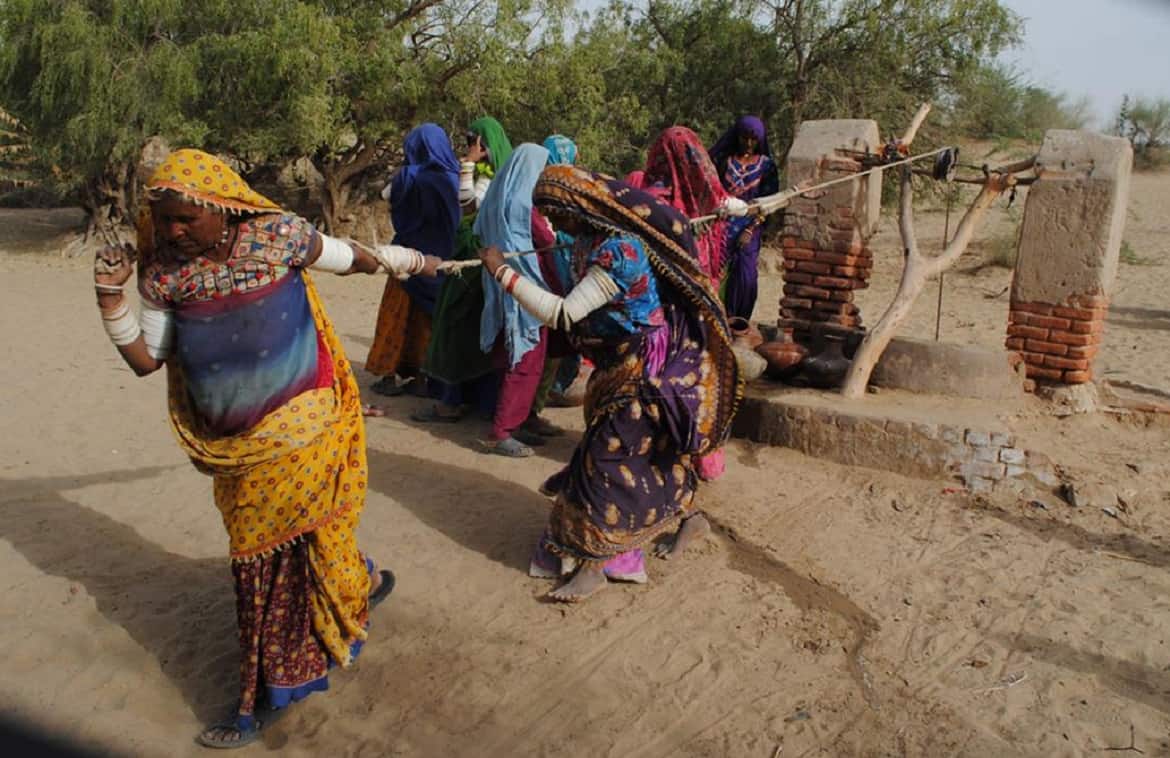
The effects of climate change on women’s rights regarding food security & malnutrition
Climate change has significant implications for women’s rights relating to food security and nutrition. With the impacts of changing climatic conditions, including altered temperature patterns, irregular rainfall, and increased incidence of extreme weather events, crop yields and agricultural production suffer. As a result, food insecurity becomes more prevalent, posing serious challenges for women, especially those in developing countries who bear the primary responsibility of providing food for their families.
Food insecurity occurs when people lack access to sufficient, safe, and nutritious food to lead a healthy and active life. Women are disproportionately affected by food insecurity due to existing gender inequalities. In many societies, women are responsible for agricultural activities such as planting, weeding, and processing post-harvest crops. However, they often face limited access to essential resources like land, credit, seeds, fertilizers, and modern farming technologies, which amplifies the vulnerability to food insecurity caused by climate change.
Climate change exacerbates gender inequalities and women’s vulnerability to food insecurity through various channels. Rising temperatures and changing rainfall patterns directly impact crop yields, reducing agricultural productivity. Women’s ability to produce adequate food for their families is compromised by reduced crop yields, degraded land, limited access to water, and other agricultural inputs. Consequently, the household food supply diminishes, leading to a higher risk of malnutrition for women and their children.

Furthermore, climate change-related factors can disrupt agricultural production systems and increase the incidence of pests and diseases, further diminishing crop yields. Pests and diseases that were previously manageable may become more challenging to control, resulting in significant losses in agricultural productivity. Extreme weather events, such as hurricanes, cyclones, and storms, can cause physical damage to crops and infrastructure, leading to substantial decreases in agricultural output. These climate-induced impacts on agricultural production disproportionally affect women, who often rely on farming as a source of income and food for their families.
The consequences of food insecurity caused by climate change extend beyond inadequate caloric intake. The insufficient access to diverse and nutritious foods leads to malnutrition, which affects women’s health and well-being, as well as that of their children. In order to prioritize the nutritional needs of their families, women may allocate limited resources to other family members while consuming less food themselves. This self-sacrifice puts women at a higher risk of malnutrition, contributing to a range of health issues such as anemia, vitamin deficiencies, and poor overall well-being.
Moreover, the impacts of food insecurity on women’s rights extend to maternal and child health. Pregnant women and young children are particularly vulnerable to malnutrition, which can have long-term consequences for their physical and cognitive development. Inadequate nutrition during pregnancy increases the risk of complications, preterm birth, and low birth weight, all of which can adversely affect the health of both the mother and child. Malnutrition during early childhood can lead to stunted growth, impaired cognitive development, and increased susceptibility to diseases.
The burden of climate change on women’s rights entails not only compromised access to sufficient and nutritious food but also increased time and energy spent on securing resources. Changes in climatic conditions disrupt ecosystems and resources, necessitating additional effort to access water, firewood, and food due to limited availability caused by scarcity and erratic weather patterns. Women often bear the responsibility of obtaining these resources, leaving them with less time for income-generating activities, education, self-care, and rest. The increased workload can lead to exhaustion and compromise their overall well-being.
Recognizing the adverse effects of climate change on women’s rights regarding food security and nutrition is crucial in designing appropriate interventions and policies. Addressing gender inequalities in access to resources, empowering women in decision-making processes, promoting gender equality in agricultural practices, and providing targeted support for women in the face of climate change can all contribute to building resilience and reducing the impacts of food insecurity and malnutrition on women’s rights.
All Categories
- Agricultural Methods
- Agriculture and Women Small Farmers Rights Awareness
- Climate Change
- Disable and Human Rights
- Disable Jobs
- Donation
- Education
- Health Issues
- Organic Foods
- Organic Vegetables
- Orphans Children
- Plastic production and disposal
- Services
- Sinking in Scarcity
- Success Stories
- Uncategorized
- Waste Management
- Women Rights
- Youth Empowerment




